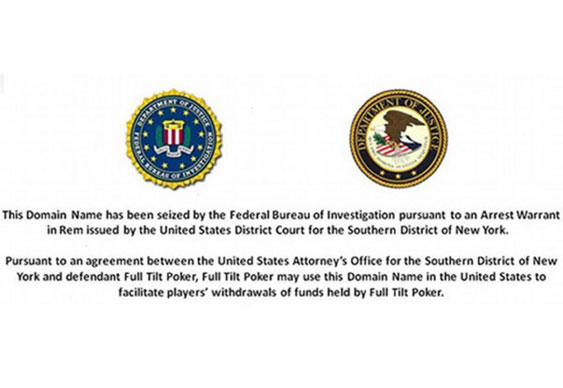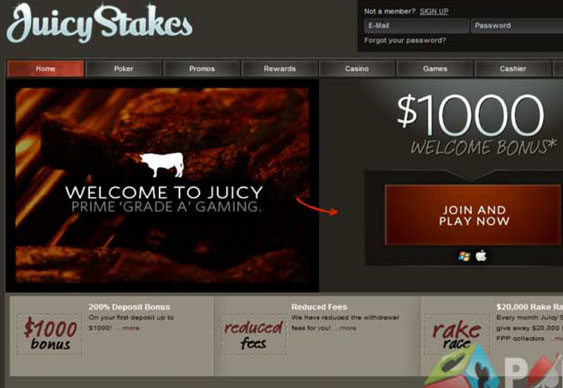United Stakes of America
Tuesday, 30 December 2014
The state of poker in the USA.
By Dan Gallagher
There are millions of us out there playing online poker. It’s a huge market where billions of dollars are raked each year. However, despite the overwhelming traffic of poker players that are online at any one time, if you were to poll a recreational online player on how many online sites they could name off the top of their head, how big do you think that number would be? Five? Ten?
Despite some players not being able to get past naming PokerStars and maybe a sportsbook brand or two currently residing on an iPoker skin, there are dozens and dozens of other sites which we can grind on, So the big questions are; Who does? And why don’t you?
At pretty much the dawn of the Internet, online sites spawned offering the opportunity to play poker against other people for real money. It was Planet Poker who first launched not so way back in 1998. In fact, the industry is so new, that people who were born in the year that Planet Poker launched are still too young to even play poker or for that matter, read this magazine - put Bluff down Timmy. Go read something productive like War and Peace.
At first, Planet Poker started to see a respectable progression in building numbers, but whilst they were starting to expand their offering month by month, the competition was watching, researching, building. It wouldn’t be long until someone else came along with new offering - a better offering.
Paradise Poker soon arrived on the scene. There’s no need to beat about the bush; Planet Poker never stood a chance. It was swift, it was painful. There was a new king of the hill. But as Paradise would find out with the launch of PartyPoker, who would in turn then suffer a similar harsh fate via the UIGEA and PokerStars - life at the top of a new market, whilst profitable, can be short.
Since ‘06 and the UIGEA, PokerStars’ decision to continue to offer real-money online poker to US customers gave them an unreachable advantage. By the time the feds moved in during April 2011, to close down their US operations, they were so far ahead that even the Department of Justice couldn’t destroy their dominance.

Let’s go back to the late 90’s. Planet Poker realised that the market was big enough for more than one player. You didn’t need to be the best or biggest in the market to run a successful site. You just needed to have a profitable business model, a player pool to support that model and standards and ethics that would keep that player pool at a healthy level.
Planet Poker prided themselves on their integrity and fantastic security. They provided games that suited their customers and managed to swim comfortably amongst the big sharks of the online poker world. Then, in 2006 the Unlawful Internet Gaming Enforcement Act came into force and Planet Poker, along with many other sites, either ceased offering real-money play to US players or ceased offering real-money play at all. The latter in Planet’s case.
Prior to the UIGEA, in the few years of the aftermath of Chris Moneymaker winning the WSOP Main Event in ‘03, the online market boomed. Everyone made money; the operators, the payment providers, the poker media, the tags, the lags, the rakeback whores. They all got rich. Good games were everywhere. You didn’t need to bum-hunt to have an incredible hourly. All you had to do was to say hello to good times.
A lot of us weren’t even playing online back then. The influx of grinders who signed up for the first time between 2007 - 2010 would have to listen to old man tales of the glory days where the games at Party were “soft as butter” and to play online was to “print money”. Thankfully, post UIGEA, some sites stuck around in the US market. You’ll know the big names now from the infamous screenshots of the DOJ notice that the domains had been seized. PokerStars were the leaders, followed closely by Full Tilt and Ultimate Bet / Absolute Poker.
It wasn’t just the now infamous trio who continued to practice in the US during that period. Sites like Intertops, who have their own place in history for their sportsbook accepting the first online bet in 1996, also continued to accept US players and even now, post “Black Friday,” continue to offer games to US citizens (although, since mid 2012, they no longer accept new US players). In the post UIGEA years, Intertops chose the same ethos of Planet Poker; “look after the players, and the rest will look after itself”. They never hit the heights of Stars or Tilt, but they did have a healthy player pool, one they’ve been able to retain since the DOJ moved in.
On that day in April, the poker landscape changed. The DOJ had finally acted to make the major players cease offering games to the US market. For Americans, the game was pretty much up. For the rest of the world, the game would never be the same again. To add insult to tremendous injury; we were to find out that, unsurprisingly, Ultimate Bet and Absolute Poker were now worth nothing and our money was gone. But more shocking that, we learned that Full Tilt - the site with all of our heroes as ambassadors, had been tremendously mismanaging our money, they would eventually go bust. Unless they were to find a buyer all that money was gone too. Thankfully, eventually the Rational Group stepped in and we all eventually got our money back. As we'll see Full Tilt was not the only site to be given a lifeline.
Online poker in the US is a tricky subject. Post UIGEA, There were sites that decided not to accept US players at all (Party, Paradise, iPoker). There were sites who continued to allow US players, but were stopped via intervention from the Department of Justice on Black Friday (PokerStars, UB/AP, Full Tilt). And finally those who the market has been left to. The sites that still offer poker to the US market. Let’s be upfront; the sites we’re talking about aren’t sites like WSOP.COM, PartyPoker or the ill-fated Ultimate Poker who obtained a licence to offer online real-money play in one or more of the three regulated states (Nevada, New Jersey & Deleware). These are sites where you can play almost anywhere in the US
Sites such as Intertops still continue to offer games to their existing US player base across the country, despite both the UIGEA & the events of Black Friday. After the events of Black Friday, and the positive, if not frustratingly slow, push towards state-by-state regulation, it may seem risky to both operator and player. But that’s not the way the sites like Intertops see it and they don’t want US players to see it like that, either. For them, the status quo continues. They have so much faith in the market that they’ve decided to work with sites which seemed doomed to fail - one of which was Juicy Stakes.

Juicy Stakes is one of the many sites that sadly came to a Full Tilt style abrupt halt. It was part of the Cake debacle. Shared liquidity and horrible mismanagement by other skins, namely Lock Poker, caused Juicy Stake huge debts that meant the former owners could not afford to pay out players. Play remained on the site, but nobody could get their winnings offline. It was a sadly familiar story and much like the Full Tilt scenario, Juicy Stakes needed to be taken over in order to survive.